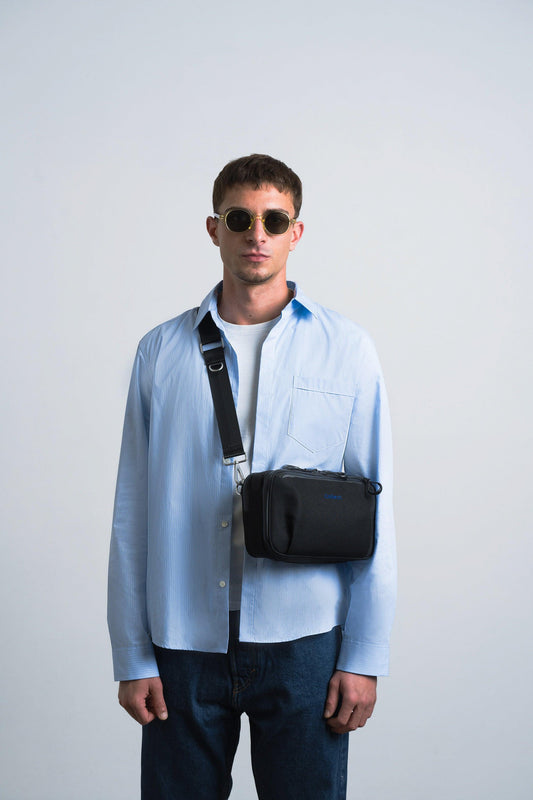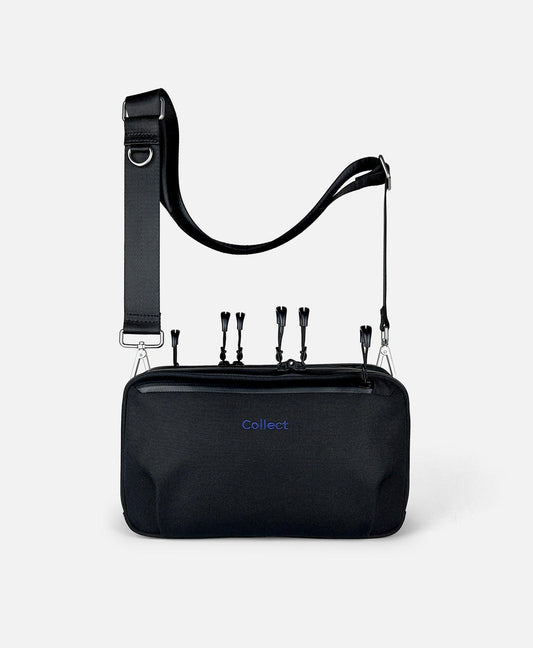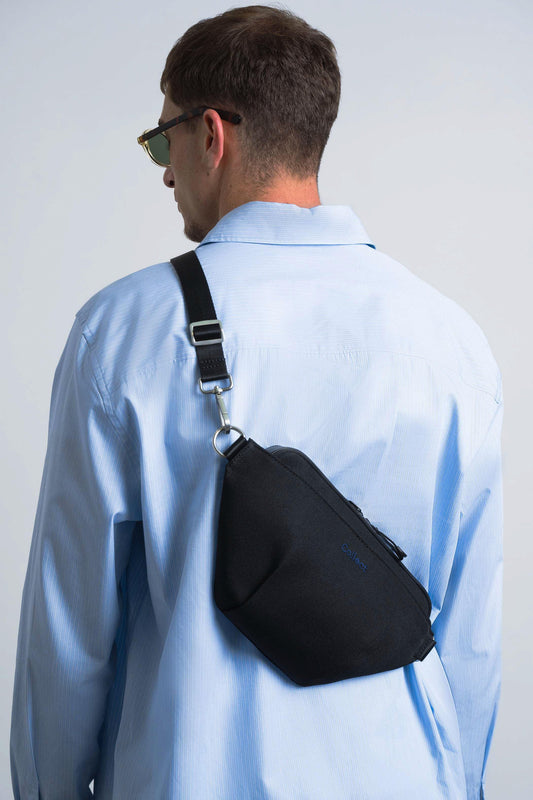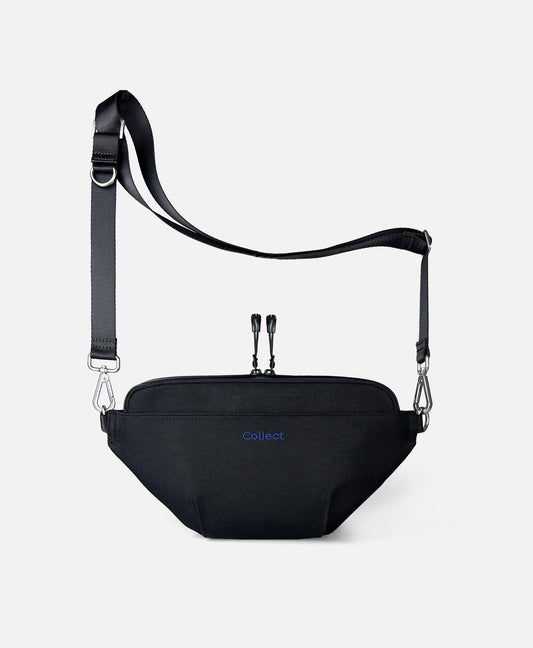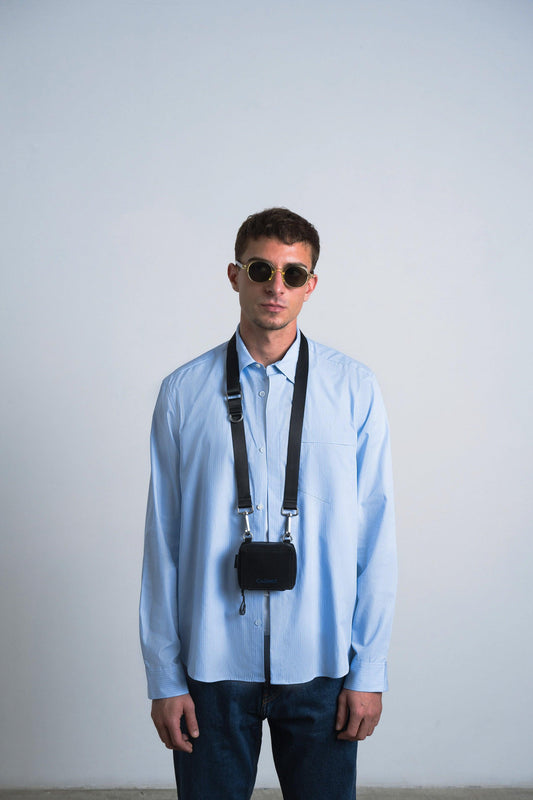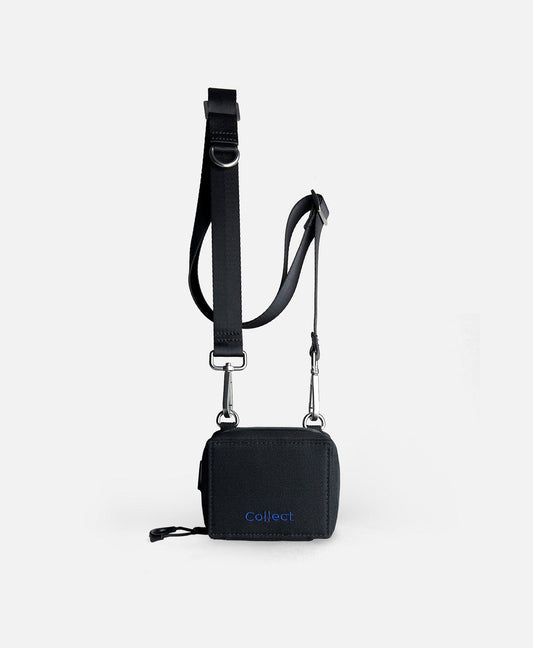
Why We Produce Our Bags in China: Tackling Ocean Plastic at Its Source
We recognise that our choice to produce our bags in China might raise eyebrows. However, this decision wasn't made lightly. It's the result of careful consideration, and we want to share with you why we believe this strategy not only makes sense but is also in line with our commitment to tackling the world's plastic crisis. Here's our reasoning.
China vs France
Paris is more than just our headquarters; it's our home. It's a city of fashion, innovation, and social impact. These values align with our brand. So, being based in Paris makes sense for us.
While France offers a rich history of fashion and craftsmanship, there are significant advantages to producing our bags in China. Here are some key reasons:
Direct Engagement with the Source of Plastic Pollution
Asia, and China in particular, faces a plastic crisis. China is a major plastic producer. As a developing economy, it's consuming more but lacks the waste management to keep up. The result? More plastic ends up in rivers and seas.
We collect plastic waste from the Yangtze River and the East China Sea. Aside from stopping the production of plastic all together, this is direct action where it matters most. We're not just talking; we're doing.
What's more, we aren't just collecting plastic at its source; we're also strengthening recycling infrastructures in areas where they're needed most, such as along riverbanks and coastlines, to prevent additional plastic from entering the ocean.
Carbon Footprint of Bi-Continental Operations
Okay, so let's say it's decided that we collect our ocean waste from the source: China. Having production in France while collecting material in China would result in back-and-forth shipments. This would unnecessarily add to the carbon emissions we're committed to reducing.
By focusing our production in China, we can more effectively execute our mission to remove ocean plastic and produce affordable, sustainable bags while minimising our environmental impact.
Certified Production: Ensuring Quality and Ethics
Next, it makes sense to talk about quality and ethics.
When it comes to production, we take no shortcuts. Our factory in China holds key certifications like ISO9001 and SMETA. But what does this mean?
ISO9001
This is a quality management certification. It ensures that our factory meets international standards for product quality. For you, the customer, this means you're getting a well-made, reliable bag that will last for years. It guarantees the same level of quality that you would expect from a bag that's made in France. It passes all the tests.
This certification demonstrates our factory's ability to consistently provide products and services that meet customer and regulatory requirements.
SMETA
This stands for Sedex Members Ethical Trade Audit. It guarantees that our factory adheres to ethical practices. This includes labour rights, health and safety, and environmental management. For the workers, this means a fair and safe work environment.
Having these certifications shows our commitment to quality and ethics. We're not just saying we care; we're proving it.
What's more...
Quality Craftsmanship
China's manufacturing landscape has transformed over the years. Today, it's a hub for quality craftsmanship across various industries, including electronics, textiles, and yes, backpack production. Skilled artisans, often with decades of experience, contribute to producing high-quality products that meet global standards.
Greater Technological Availability
While France has its strengths, China's technological advancements in the area of recyclable materials and eco-friendly production are currently more robust. This is crucial for the quality and sustainability of our products.
Efficient Component Logistics
Almost every component of a bag—from the zippers to the buckles—is made in China. Industries have stopped manufacturing certain elements in western countries and China is the only place to find them. Shipping these individual components to France would involve multiple suppliers and a complex, carbon-intensive supply chain. This not only increases costs but also amplifies our carbon footprint.
Lower Production Costs
Producing in France would result in significantly higher labour and operational costs. This would, in turn, increase the retail price of our bags & accessories, contradicting our aim to make sustainable products accessible to a wider audience and to remove as much plastic from our oceans as possible.
In doing so, we understand the risk involved. That's why we prioritise ethical labor practices, guaranteeing fair treatment, including wages, safety, and rights protection for our workers. This fosters just and socially responsible workplaces, centred on enhancing employee well-being.
Distribution: Back in Paris
The finished bags take a container ship back to Paris. It's a low-emission option. From Paris, we use the most sustainable transport methods that are available to us to get our bags to you.
Minimising and Offsetting Our Carbon Footprint
We take climate change seriously, and reducing emissions is a top priority for us. That's why we've made conscious decisions at every step of our production and distribution process.
Emission Reduction Strategies
- Fabric production: The production of our ocean waste fabric uses 70% less energy, 75% less CO2, and 86% less water compared to traditional fabrics.
- Localised Production: Producing where we collect the plastic waste in China, we reduce the need for international shipping of each individual component.
- Bulk Shipping: Our bags travel back to Paris via container ships, which are more carbon-efficient compared to air freight.
- Green Distribution: Once in Paris, we use the most sustainable transport options available to deliver our bags to you.
Carbon Offsetting Initiatives
Despite our best efforts, some emissions are unavoidable. To compensate, we invest in well-chosen carbon removal programs. These initiatives focus on sustainable forestry, renewable energy, and other projects aimed at reducing the global carbon footprint.
Acknowledging Imperfections
We're not perfect. But we're committed to improving. We'd rather start imperfectly and make a real impact now whilst improving along the way, than wait for a "perfect" moment that may never come.
Conclusion
Our production choices are deliberate. Our mission to clean the oceans guides every decision we make, from collecting plastic at its source to producing bags where it makes the most sense—both environmentally and economically. Being in China lets us do that.
But who knows what tomorrow may bring?
Join us. Be part of a solution that's real, effective, and now.
Shop the collection below to make an impact.








